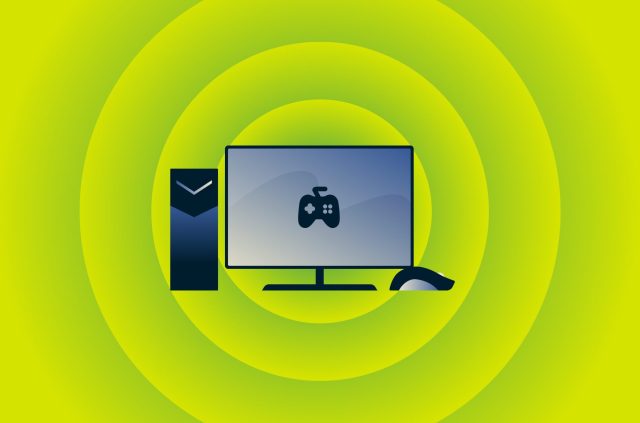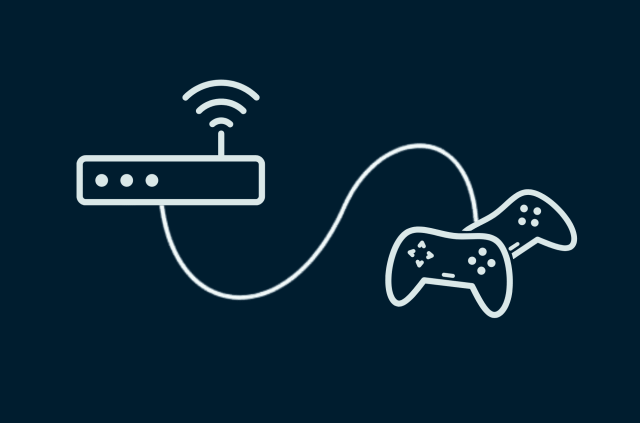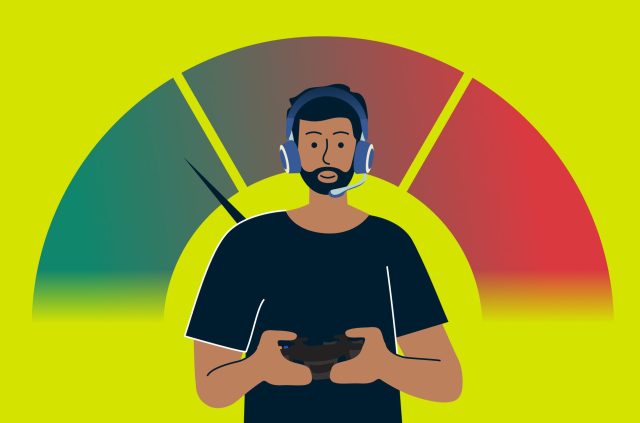For decades now, whether you game on Mac or Windows hasn’t really been much of a question—Windows has simply dominated the gaming sphere. However, with the advent of Apple’s own silicon in the form of their M chips, along with some impressive software developments, this question is now actually worth asking.
So, is a Mac worth considering if you’re an Apple fan but want a powerful gaming machine, or is Windows still the only answer? Let’s find out.
Jump to…
- General performance
- Hardware options
- Customization and looks
- Gaming compatibility
- Cost
- Portability
- The verdict
Mac vs. Windows gaming: General performance
Apple’s M3 chips are the best that the company currently has to offer when it comes to gaming. With that in mind, here are some test runs on a MacBook Pro with the latest M3 Max chip. We pitted it against a high-end gaming laptop rather than a desktop to even the odds a little, since there are currently no M3 chips available in Apple desktops.
| Game | Macbook Pro M3 | Razer Blade 16 | % difference |
|---|---|---|---|
| Shadow of the Tomb Raider | 125 FPS | 170 FPS | +36% |
| RE4 | 72 FPS | 115 FPS | +59% |
| Baldur’s Gate 3 | 61 FPS | 57 FPS | -6.55% |
These results show an interesting contrast. In games where the GPU does the heavy lifting, the Windows PC comes out ahead, but in a CPU-intensive (and Mac-optimized) game like Baldur’s Gate, the M3 chip shines, and even wins out.
Since games can vary so much (and mostly aren’t yet optimized for macOS), I also collated some scores from popular benchmarking tools. First of all, here are some Geekbench scores comparing raw GPU performance. We’re comparing the best that each system has to offer - the top-specced M3 Max chip compared to both the best Windows GPU (the RTX 4090) and one of the top mobile Windows CPUs (the Intel Core i9-14900HX).
| M3 Max | RTX 4090 mobile (GPU) | % difference | |
| Geekbench CL | 86029 | 182224 | +111% |
Next up are some single-core and multi-core CPU benchmarks:
| M3 Max | Intel Core i9-14900HX (CPU) | % difference | |
| Geekbench (single core) | 3130 | 2920 | -6.7% |
| Geekbench (multi core) | 20931 | 18062 | -13.7% |
As you can see, the Windows hardware made short work of the GPU benchmarks, but CPU scores were much closer, with the M3 Max winning in both single and multicore. However, keep in mind that if these tests had instead been run on the best available Windows desktop CPU, it would either be on par with or slightly beat the M3 Max. Nonetheless, the M3 chips are incredibly impressive.
For overall gaming, this still puts Windows machines ahead, but the gap is rapidly narrowing, and future “M” chip generations (with a helping of software optimization) are bound to see Mac scores climbing much further.
Winner: Windows
Mac vs. PC gaming: Hardware options
When it comes to gaming hardware, Windows PCs have a clear advantage over Macs.
The primary reason is the flexibility in terms of internal components, with a wide range of available GPUs, CPUs, and other hardware that can be used to create the perfect custom PC. This modularity has a couple of primary benefits:
- PCs can be adapted to almost any budget due to a vast second-hand market for components, allowing for either budget builds or high-end systems.
- Continuous upgrades are possible by replacing individual components, unlike Macs, where the entire system often needs replacing. Windows gaming laptops share similar upgrade limitations while Windows desktops are fantastic for this, as opposed to Mac desktops which are notoriously difficult/impossible to upgrade.
While you should be able to use almost any keyboard, mouse, or headset on macOS, not all functionality might be available due to incompatible software. This can affect:
- Superficial aspects like lighting.
- More important settings such as key mapping.
- Gaming controller support, which has improved for official console controllers (DualShock 4/5, Xbox One controller) but can still be hit-or-miss for third-party controllers, whereas Windows generally has fewer issues.
Windows PCs also excel in VR gaming, supporting various headsets including the Oculus Rift, HTC Vive, and standalone options like the Meta Quest series, which can be connected to PCs via a cable for improved graphics and performance. The Apple Vision Pro, while incredibly impressive on a technical level, only supports a small selection of augmented reality games, but no full VR games as of yet (and can’t be connected to a Mac).
As Apple continues to innovate and expand its hardware ecosystem, it will be interesting to see if Macs can become more competitive in the gaming arena. The potential impact of the Vision Pro and other upcoming technologies could significantly enhance the gaming experience on Mac, bridging some of the gaps that currently exist between Mac and PC gaming.
Winner: Windows
Mac vs. PC gaming: Customization and looks
Windows PC gamers can choose from a wide variety of components and peripherals to build a system that meets their specific needs and preferences. This includes selecting different cases, cooling systems, GPUs, and CPUs, as well as adding personal touches like RGB lighting and custom monitor setups.
On the other hand, Macs tend to offer a much cleaner and more standardized design. Apple's focus on aesthetics and simplicity results in sleek, uniform machines that appeal to users who prefer a minimalist setup or simply don’t want a “gamery” look. While this lack of customization might be a drawback for some gamers, others will appreciate the streamlined and polished look of Apple’s products.
Of course, there are also Windows PCs that are built to look clean and sleek. A few examples include the ASUS Zephyrus G16 and the Lenovo Legion 5i laptops.
Winner: Draw (dependent on your taste).
Mac vs. PC gaming: Gaming compatibility
The main gaming advantage that Windows has over Mac is the vast range of games that are natively compatible with the platform. Historically, Apple has positioned the Mac more as a lifestyle and productivity machine rather than a gaming-oriented device. However, this has been changing over the past few years, with Apple making strides to improve gaming on Mac.
One of the significant developments in Mac gaming compatibility is the introduction of compatibility layers and virtualization tools:
- Wine: Translates Windows software to run on macOS by converting system calls.
- CrossOver: A commercial product based on Wine that simplifies the process of running Windows applications on macOS.
- GPTK (Game Porting Toolkit): An extension of Wine, allowing games based on Direct3D 12 (Windows graphics API) to be translated to Metal (Apple's graphics API).
- Whisky: A graphical utility that sets up an environment for Wine applications to run smoothly.
- Parallels: Allows virtualization of another operating system, running it on top of macOS as if it were native.
- Rosetta 2: A translation layer that allows applications built for Intel-based Macs to run on Apple Silicon Macs.
These tools have made it increasingly possible to play (almost) any Windows game on macOS, as well as even regular Windows applications. Despite these advancements, many of these games won’t run as well as on Windows, but at least the gap is continually narrowing.
Perhaps more interesting for the long-term is that major gaming studios are now starting to publish Mac-optimized versions of popular games. Some of these include:
- Baldur’s Gate 3
- Death Stranding
- Resident Evil 4 and Resident Evil: Village
- Total War: Pharaoh
- World of Warcraft
- Stray
The selection of games optimized for Mac remains very limited compared to the vast library accessible to Windows users, but it’s a welcome sign that good things are on the horizon for Mac gamers.
Cloud gaming is also an option, which allows you to stream games in real-time from the internet, as long as your connection is fast enough. Some services, like GeForce Now, essentially let you boot up a high-end gaming PC even if you’re running on a low-end machine without a GPU. This goes for both Mac or Windows users.
Windows PCs also tend to have better support and performance for online multiplayer games. Titles like Fortnite, Apex Legends, and Call of Duty: Warzone often receive updates and optimizations for Windows first, resulting in a more robust online gaming experience. To enhance security during online gaming sessions (or for getting easier lobbies), using a VPN on your Mac can be beneficial.
In summary, while Apple is making efforts to improve gaming on Mac with initiatives like Metal and compatibility tools like CrossOver, Windows still holds a substantial lead in gaming compatibility. The extensive game library, robust online multiplayer support, and thriving modding community make Windows the preferred choice for many gamers. However, the gap is narrowing, and Mac users can now enjoy a broader range of games than ever before.
Winner: Windows
Mac vs. PC gaming: Cost
When it comes to cost, Macs typically have a higher upfront price compared to Windows PCs. This initial investment is often justified by the longevity, build quality, and reliability of Mac products, as well as the seamless user experience on offer. However, there’s no doubt also a markup added simply due to the power of the Apple brand.
In contrast, a basic Windows gaming PC might start at a lower price point, and can be added to and upgraded over time, depending on budget. Overall, the modularity of PCs offers flexibility in incremental upgrades, which can be both an advantage and an added expense (depending on how often you were to upgrade components).
Winner: Windows
Mac vs. PC gaming: Portability
Portability only really concerns laptops, so we’ll focus on the Macbook Pro 16” vs. comparable Windows gaming laptops. The most important variables here are battery life and weight/dimensions, and the Mac makes a strong first impression. You can see how it stacks up to 4 other top of the line Windows gaming laptops below:
| Laptop model | Weight | Average battery Life (general use) |
| MacBook Pro 14-inch | 1.61 kg (3.5 lbs) | Up to 12 hours |
| MacBook Pro 16-inch | 2.16 kg (4.8 lbs) | Up to 15 hours |
| Razer Blade 16 (2024) | 2.45 kg (5.4 lbs) | 3-5 hours |
| Lenovo Legion Pro 5i | 2.5 kg (5.51 lbs) | 5 hours |
| Asus ROG Strix G16 | 2.3 kg (5.1 lbs) | 8.8 hours |
| Alienware m16 R2 | 2.61 kg (5.75 lbs) | 6.18 hours |
As you can see, not only are the Macbooks lighter than all of the tested Windows laptops, but also have significantly longer battery lives. Considering that your average person who uses their laptop for gaming will likely also use it for work and other leisure activities, the Mac has a clear advantage in terms of not needing to be near a plug for an extended period of time.
For pure quality of life and portability, Macs easily win this section.
Winner: Mac
Mac vs. PC gaming: The verdict
Windows PCs generally outperform Macs in gaming simply due to higher overall performance. They also offer extensive hardware customization and peripheral options, allowing you to upgrade components and choose from a variety of parts to fit any budget.
If you prefer the Apple ecosystem and macOS, a Mac is still a good fit due to ongoing improvements in gaming support, superior battery life (if you choose a laptop), and a sleeker form factor. While Windows remains the top choice for peak gaming performance, Macs are becoming increasingly viable for those who value design and portability.
Overall Winner: Windows is still superior for gaming, but there are also reasons to opt for Mac.
FAQ: About Mac vs. PC gaming
Is gaming possible on a Mac?
However, the selection of natively optimized Mac titles is quite limited, and to be able to play all Windows games you need to use software like Crossover to translate the software for macOS (although it’s straightforward to use once set up).
You can also access Apple Arcade, although games there generally aren’t full PC-level experiences, but rather premium mobile games.
Do Macs last longer than PCs?
- Build quality: Macs are known for their premium build quality, using materials like aluminum, which can enhance durability.
- Operating system updates: Apple consistently provides macOS updates for several years, ensuring older models receive new features and security updates, which can extend their usable life. Windows PCs rely on manufacturers for updates, which can be less consistent.
- Hardware upgradability: Macs, especially modern models, have non-upgradable components. In contrast, desktop PCs allow for individual components like RAM, storage, and graphics cards to be upgraded, which can significantly extend their lifespan.
- Performance over time: Both Macs and PCs can slow down over time due to software bloat or outdated hardware. Regular maintenance can help prolong the lifespan of both types of computers.
- User satisfaction: Macs often report higher user satisfaction rates, which some users interpret as longer useful lifespans.
In summary, while Macs are often seen as longer-lasting due to their build quality and consistent updates, PCs offer greater upgradability, which can also contribute to longevity. Proper care and maintenance are crucial for extending the lifespan of both Macs and PCs. If choosing a Mac, this includes protecting yourself online
Can I turn my Mac into a gaming computer?
- Compatibility layers are likely necessary: Tools like Parallels, Wine, GPTK, CrossOver, and Whisky can help run Windows games on macOS by translating or virtualizing Windows applications.
- Hardware limitations: Macs generally have less powerful GPUs compared to gaming PCs, which can limit performance in graphically intensive games.
- Game availability: While platforms like Steam offer games for macOS, the library of native titles is smaller than on Windows. However, compatibility tools can expand your game options.
- Performance: Using compatibility layers or virtual machines can impact performance, often resulting in lower native gaming performance compared to Windows.
In summary, you can enhance your Mac for gaming with various tools, but it may not match the performance and game availability of a dedicated gaming PC.
Can you play PC only games on Mac?
Take the first step to protect yourself online. Try ExpressVPN risk-free.
Get ExpressVPN













